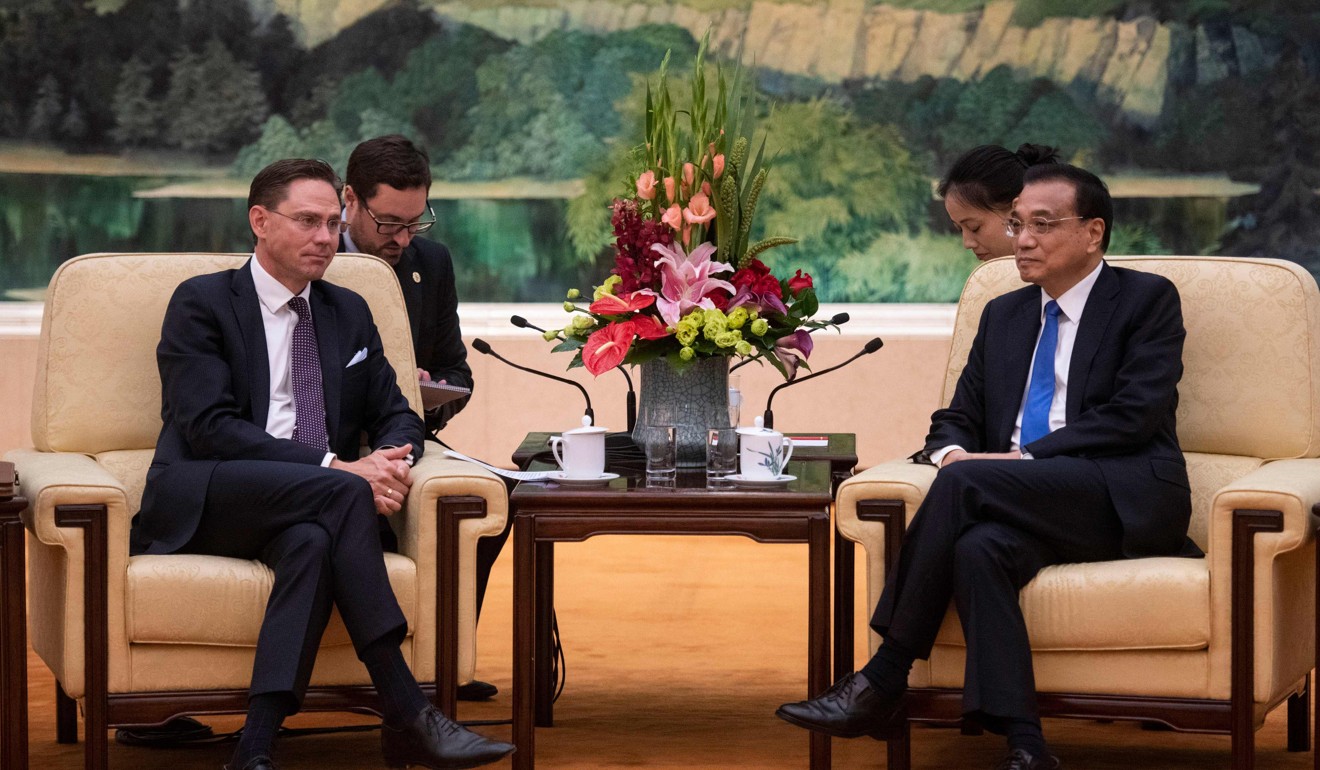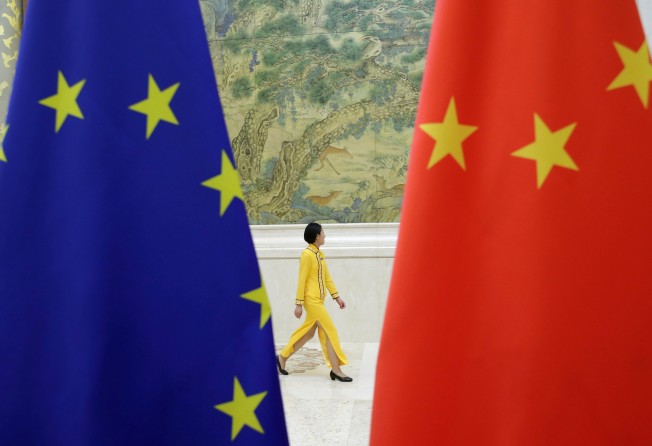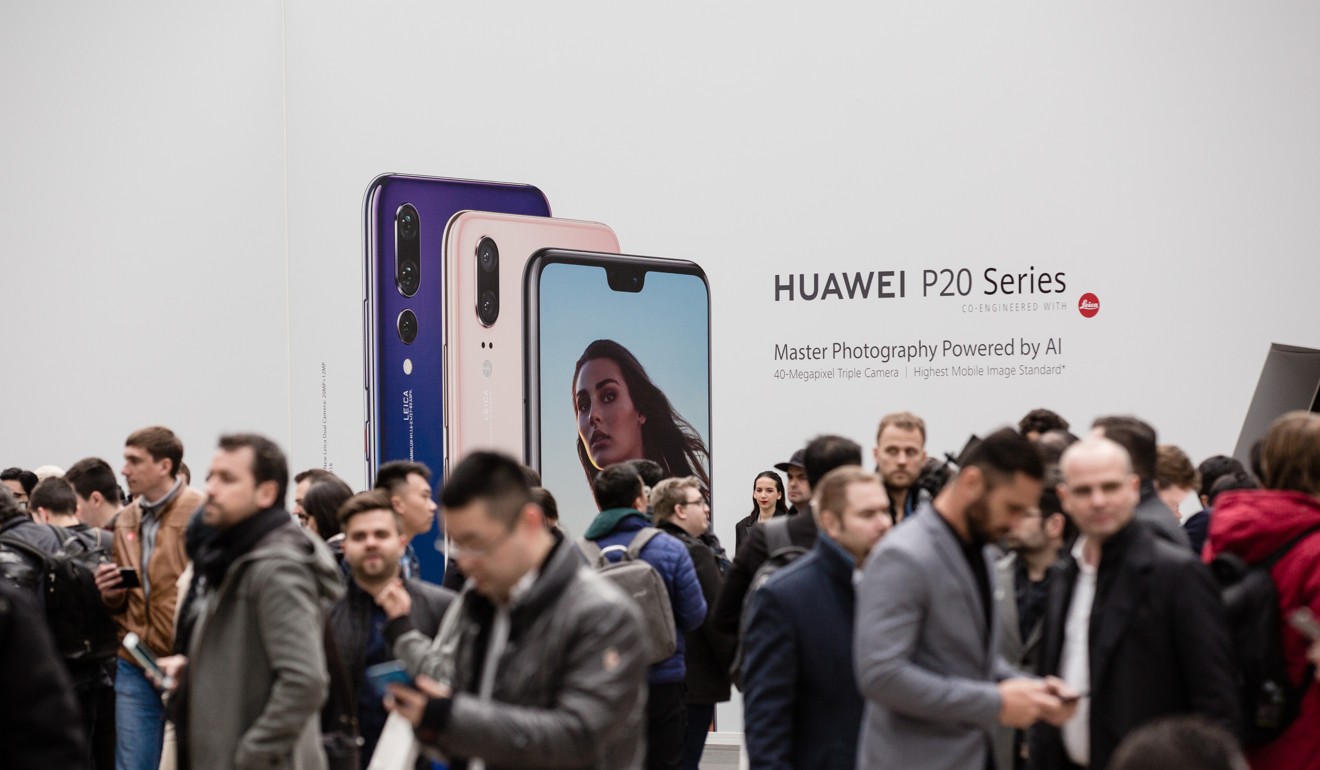
How Trump can bring China and the European Union closer, if they can be pragmatic about their wish lists
Yu Jie says the EU must overcome its Sinophobia while China must approach investments in Europe with less Sinocentrism if the two parties are to work together

Europe remains disengaged in Asian geopolitical struggles. Brussels has shown no interest or capacity to get involved in the global power struggles between Beijing and Washington. Instead, China is viewed almost exclusively in economic terms, as an opportunity for European service-oriented economies and a threat to the European manufacturing sectors.
While the European Union seems incapable of resolving one severe crisis after another, Beijing will inevitably reassess the value of its partnerships with Brussels and EU member states. Tough questions will be asked at this year’s upcoming EU-China Summit and the annual gathering between Beijing and the 16 central and eastern European countries in Sofia.
Decision-makers in Beijing are very clear about what China wants from the EU: first, free access to the European single market. Second, a secure home for its investments. In particular, a willing partner for China’s ever-growing appetite for overseas assets acquisitions.
Third, a meaningful diplomatic alternative to its increasingly fractious and erratic relationship with the United States of America, which China would argue has turned into the “Unreliable States of America” for both China and Europe.
The EU has been at odds with all three of these “wants” from China. This is unlikely to change soon, even if the transatlantic alliances seem at risk of dissolution.

On market access and market economy status, China is asking to be recognised as a market economy and to undertake an equal economic partnership. Europe, on the other hand, stresses reciprocity of market access, seeking equal opportunities for European companies.
Beijing believes achieving market economy status would be more than mere political recognition by Brussels. It would bring relief to China in dealing with its long-standing issue of excessive industrial capacity. China will have to pay a heavy price, both economically and politically, for failing to address its overcapacity.
Laying off a large number of workers in non-performing industries will induce social discontent which, in turn, could destabilise the reign of the Communist Party.
China has emerged from learning technological innovations from European to competing with them. The vast Chinese domestic market is not only fertile ground for European firms, but also for China’s home-grown enterprises who can now deliver the same high-quality products as their European competitors.

The EU still perceives China’s extensive investments with anxiety; a further source of pressure on the bloc’s fragile unity. Brussels has deep suspicions over China’s broader strategic calculation beyond commercial gains.
Brussels has deep suspicions over China’s broader strategic calculation beyond commercial gains
Europeans perceive Beijing’s “Made in China 2025” industrial upgrade initiative as posing a direct challenge to their “Fourth Industrial Revolution”. This leads to a spiralling xenophobia developing within parts of Europe. And this xenophobia easily becomes Sinophobia, causing pundits and politicians to blame China for almost everything in Europe.
Beijing has to realise that it is vital to fully engage EU member states, irrespective of their size, on whose sovereign land infrastructure is to be built. This includes conducting far wider international consultation on projects that are part of the “Belt and Road Initiative”.
Beijing must look for “win-wins” that are not just China winning twice at its partners’ expense.
China should make genuine attempts to generate positive economic well-being in investment destinations, and not merely treat the involved European partners as vehicles for its benefit alone.
Growing Sinophobia often combines with the long-standing normative division between China and Europe
However, as is so often the case with China’s foreign affairs, its engagements with partners seem fundamentally rooted in a Sinocentric approach to the world, driven by inward-looking impulses and intended primarily to meet pressing domestic needs.
Growing Sinophobia often combines with the long-standing normative division between China and Europe. This divide hinders the EU’s attempts to be a substantial diplomatic partner to Beijing. The EU’s engagements with China have drawn from its neighbourhood policy, whereby democratisation processes through political reforms were seen as means to reintegrate formerly communist East European states.
This attitude generates great suspicion among both the Chinese public and political elite. It is seen as a fundamental challenge to the Chinese state’s stability, which is based on the Communist Party’s absolute legitimacy and control with a strong government role.
Watch: Xi Jinping reveals economic plans at Boao Forum
Europeans cannot afford to ignore the omnipresence of the party or pretend that those conceptual differences on democracy and political freedoms do not exist. President Xi Jinping’s recent moves both at home and abroad have not put China in a comfortable position with the West.
Like China’s relations with all great powers, there is a substantial distance to travel between wishes and reality. Politics is the art of feasible. China and the EU should not impose their individual “unrequited wants” and return to enmity. Instead, they should find common ground to defend against the belligerent isolationism of US President Donald Trump’s foreign policy, which threatens economic prosperity across the globe.
Dr Yu Jie is head of China Foresight at LSE IDEAS, the foreign policy think tank of the London School of Economics and Political Science